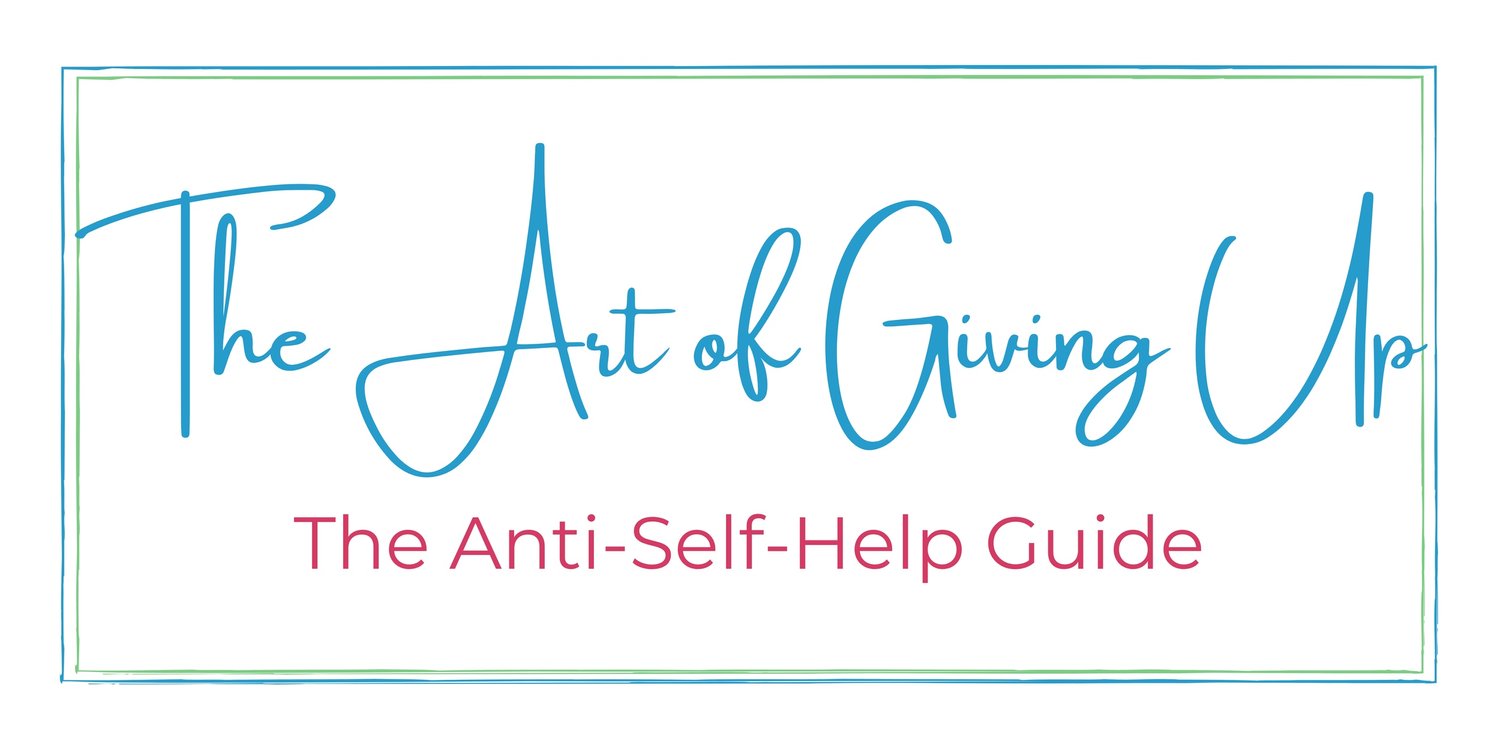Complicate Your Experience
Nothing is black and white, everything exists in some gray area, or so the cliche goes. But that’s stupid, because gray is a mix of black and white, so therefore everything is black and white. Duh. The saying should go “everything is black AND white”. This will be a recurring theme for us, so now is as good a time as any to introduce it. Actually, it’s probably the best time.
You’ve been encouraged to make your gray area home somewhere in between the Black House and the White House, but it’s time to list that sucker on Zillow and get a nice travel pillow, because you’re going to start splitting your time between the two extremes.
*Psst….You can’t regulate yourself if you don’t understand your emotions
Generalize Your Emotions
The main enemy in our fight to give up is accuracy and specificity in our thoughts. Our goal is to zoom out to the biggest picture and blur out the most details whenever we have a thought. For instance, instead of focusing on the particulars of sitting with my left leg crossed over my right, chewing gum that lost its flavor ten minutes ago, and using my laptop to research, outline and discuss the importance of achieving emotional disregulation, the only thing my brain would say if asked what I am doing this second is “writing”. My ultimate goal is to filter out all the minutia until the most specific thing I am aware of is merely that I exist, but that’s like endarkenment level givingupedness.
And yes, I know I used the word “unlightenment” in the last chapter, but that’s a totally different thing than “endarkenment”, so get over it.
In terms of emotions, employing the zoom/blur function means reidentifying your emotions when you notice you’re having one. You might feel affection for your father, compassion for your best friend, and lust for Jean-Claude Van Damme, but essentially you feel love for all three of them. Gets a little creepy when you start equating the stirring in your loins that builds while you’re watching a montage of JCVD buns, with the pleasant appreciation of the thoughtful birthday card your dad sent, yeah?
Good.
The less specific you are when naming your emotions, the more you will grow to distrust and ultimately dread them.
ANY TIME YOU CAN NAME A SPECIFIC FEELING YOU ARE HAVING, REIDENTIFY IT AS ONE OF THE SIX UNIVERSAL EMOTIONS AND REFRAME YOUR RESPONSE ACCORDINGLY
Simplifying your description of your emotions to its basest form is only one way to remain ignorant to your experience, because labeling a feeling as one of the universal emotions, doesn’t mean it is the primary emotion.
Ignore Information
If the function of emotions is to tell us something, we want to plant our fingers uncomfortably deep in our ears to block out any information that could potentially lead to some personal insight.
Remember that fight or flight response? Rather than letting fear signal you to run away from the angry bear snarling ferociously in your face, take a few minutes to survey the situation and decide how you want to proceed with your day. Who knows, maybe the bear will respect your thoughtful approach and make you an honorary member of the Secret Society of Sentient Sbears. Or maybe it will bite your face off. But the point is, you didn’t let a silly emotion boss you around.
Maybe you don’t find yourself fending off bears that often. That’s ok, there are other ways you can avoid letting instincts dictate your decisions. Take a sniff of that suspicious looking milk in the fridge at work. Doesn’t smell great, does it? Are you having a strong desire to put as much distance between the offensive beverage and your mouth as possible? That’s that stupid bitch disgust trying to tell you what to do. Drink that pungent milk. Eat those rancid eggs. Lick those noxious balls. It’s your life, fucking live it.
Ignoring or misinterpreting our emotions can also motivate ineffective action, thus perpetuating a cycle of frustration. The butterflies in your stomach that flutter at the thought of an upcoming job interview signal that you harbor some fear about not getting the position. Recognizing the fear is a little too thoughtful for my tastes, but there’s still a chance to turn it around. Rather than using the fear to motivate yourself to prepare diligently for the interview, you can instead let it demoralize you and prompt you to seek jobs that are so far below your skill level that you are almost guaranteed to secure them.
And as a bonus, which we will discuss in more detail later on, when your motivation is to avoid an emotion, each time it returns will be more and more devastating, like an antibiotic-resistant strain of bacteria eating away at your sanity.
The effects of inaccurately identifying your emotions can extend beyond your personal processing and lead to communication issues with people forced to make sense of the muddle you’re presenting them. By expressing emotions that aren’t in line with your root emotion, you open yourself up to opportunities for miscommunication and invalidation.
